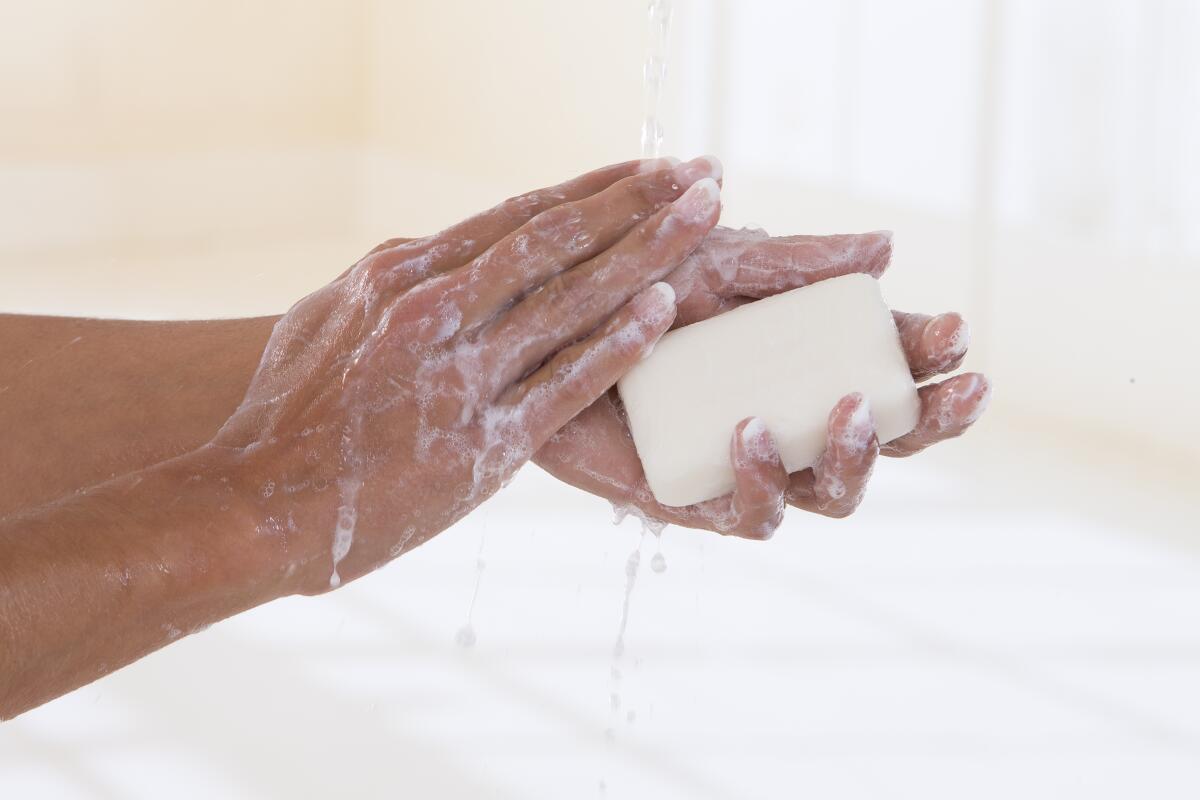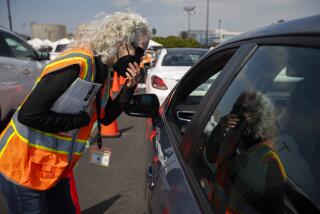Op-Ed: How to sing ‘Happy Birthday’ during an epidemic

- Share via
I was already a hand washer. Ever since I became a parent 25 years ago, I’ve cleaned my hands with soap and water several times a day. As anyone who has spent time around kids will tell you, they can be not only messy but also dirty, and they often get one another sick. A regular regimen at the sink can go a long way toward self-protection.
My kids are grown, but the hand-washing habit remains. And since the spread of coronavirus, it’s been kicked into overdrive.
I don’t consider myself panicked about COVID-19, although I’d be lying if I said I wasn’t concerned. I live in an enormous city, packed with people, including countless travelers, and I understand how easily a contagious virus spreads. Still, even with daily upticks in the number of local cases and news of California deaths, the overall risk of infection and serious illness remains — for the moment, anyway — low.
And hand washing, as the Centers for Disease Control and Prevention, as well as Gavin Newsom and even Mike Pence, keeps saying, may help us to keep it like that. The hard part has to do with the duration. “Scrub your hands for at least 20 seconds,” the CDC website admonishes. “Need a timer? Hum the ‘Happy Birthday’ song from beginning to end twice.”
I don’t know about you, but I can’t help feeling ridiculous, standing in the bathroom, gazing at my face in the mirror, as I wash my hands and sing “Happy Birthday” — usually “to me” — twice under my breath.
For that reason, perhaps, I found myself wanting to speed through it at first. I had to force myself to slow down to approximate a birthday-party pace. Eventually, however, I got used to it. A couple of run-throughs of “Happy Birthday” started to seem, well, natural.
The turning point came with a slight, unconscious tweak on the lyrics. After a few days, I added three words to the routine: “And many more.”
That’s the way we do “Happy Birthday” in my family. I’ve used the line so many times, over so many years and birthdays, that without it, the ritual feels incomplete. Its emergence during my hand-washing routine is a reminder that humans adapt to extreme situations by normalizing (or trying to) the unknown. Why not sing the song, in other words, the way I really sing the song?
These days, of course, those habitual words have particular resonance. What I am doing, after all, when I add “and many more,’” is making a plea: Let us stay safe and alive. It’s a secular entreaty — not unlike the Spanish expression ojalá, which the essayist Richard Rodriguez recalled his mother saying at “every private leave-taking.” “Its meaning,” writes Rodriguez, “is something like I pray it may be so.”
I am an adult, cognizant of random chance and uncertainty. I’ve come to recognize that insecurity, chaos even, is the way of the world. In the face of an epidemic stretching toward a pandemic, I have one eye on living as if there will be no exceptional disruptions, and the other on preparing for catastrophe. What I’m saying is that I do not generally rely on magical thinking.
I have laid in supplies: peanut butter and water and dry goods, cold medicine and zinc tablets and soap. I have food for the animals. I’m in regular touch with my children as they go about their adult lives. They groan at me when I ask, as I used to do when they were younger, when they last washed their hands. But now I am consciously singing “and many more” when I fulfill the CDC’s instructions about how to wash my hands. Let us call it a means of reassurance, even (or especially) if I do not, cannot, feel particularly reassured.
I offer it to you as well, this coping mechanism, this precaution, this projection of a happy ending, which is, of course, a whisper of faith, not in divine intervention but in our ability to care for one another and ourselves.
This is how I’ve come to think of it, at any rate, each of the many times a day — six, eight, 10, a dozen — I sing “Happy Birthday” and scrub my hands to try and wash away the dread.
David L. Ulin is a contributing writer to Opinion.
More to Read
A cure for the common opinion
Get thought-provoking perspectives with our weekly newsletter.
You may occasionally receive promotional content from the Los Angeles Times.










